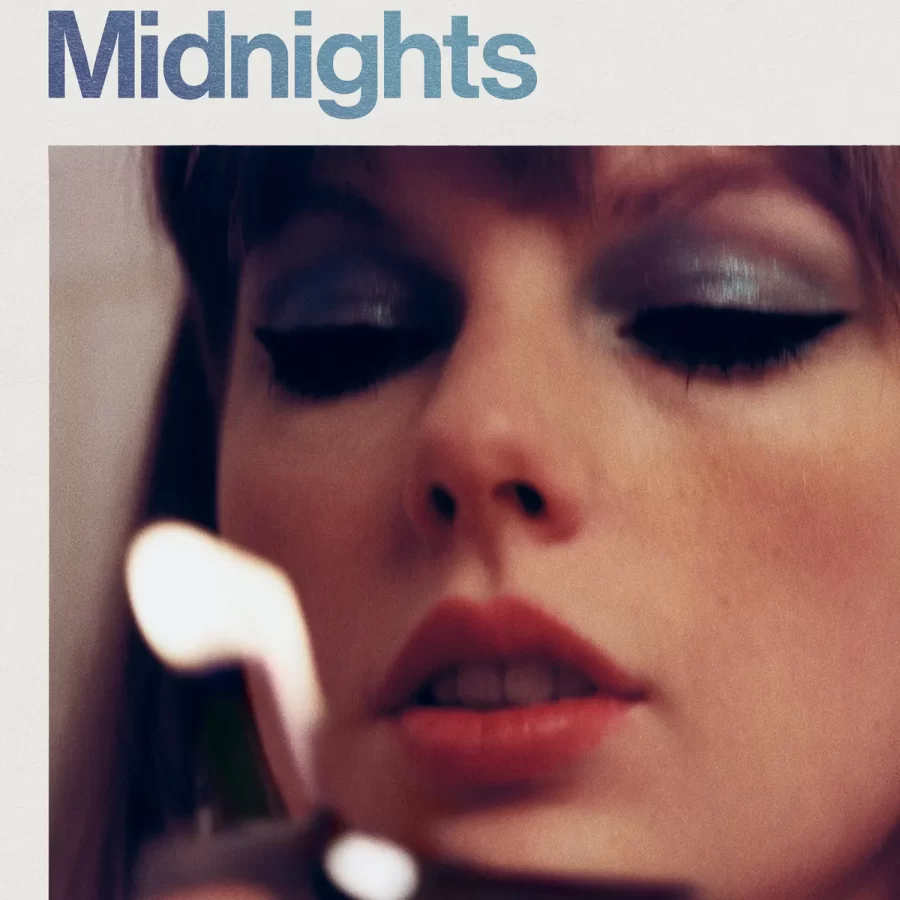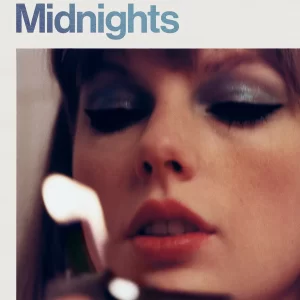Album Review: Midnights by Taylor Swift
January 14, 2023
Since 2006, when Taylor Swift released her first single, “Tim McGraw,” she has been an undeniable presence in the music industry, winning 11 Grammy Awards, 34 American Music Awards, 29 Billboard Music Awards, 84 Guinness World Records, 14 MTV Video Music Awards, an Emmy Award, and many more accolades. This lengthy list does not even begin to consider Swift’s massive commercial success, systematic changes to the music industry, and profound impact on popular culture. Even her biggest hater can not deny that Taylor Swift is an unstoppable force, so it comes as no surprise that her new album, Midnights, is proving to be just as successful or even more so than any album released by Swift thus far. In its limited time since release, Midnights has already earned the most single-day streams of any album from any artist, reached number one on the Billboard Top 200, and taken up all of the top 10 on the Billboard Top 100–the most of any album.
Midnights, released October 21, 2022, is a lesson in pop perfection with lyrics that reveal a mature, self-aware, and at times self-loathing artist. To any steadfast fan or casual listener of Swift, Midnights feels both entirely new and completely familiar. This is because, while this is her first venture into the genre of bedroom pop, the profound lyrics, trademark of Swift, are still front and center. Midnights leaves the listener with no doubts that Swift has left the wooded cabin of folklore and evermore and has returned to the shining city lights of 1989 and reputation, albeit with the lights a little dimmer, reflecting an artist who is older and wiser than before.
Swift has presented the album as a conglomeration of midnights throughout her life, both the good and the bad. The topics explored are some of the usual suspects in Swift’s writing: love, reputation, expectations, and self-reflection, but the way in which these topics are explored is intriguing as always. One of the album’s biggest standouts comes from the lead single entitled “Anti-Hero.” With a snarky chorus that proclaims: “It’s me / Hi! / I’m the problem, it’s me,” this song still harbors introspective lyrics that are a masterclass in the art of the “sad bop.” Meanwhile, “Snow On The Beach,” which features Lana Del Rey, allows Swift to return to her roots, exploring love with a whimsical melody as she asks her lover, “Are we falling like snow on the beach?” Later in the album, Swift seems to address her foes Kanye West and Scooter Braun in “Karma” and “Vigilante Sh*t,” saying that “[her] pennies made [their] crown” and advising the listener, “don’t get sad, get even.” The standard album is masterfully ended with “Mastermind,” a track in which Swift examines her proclivity to plan things out. This is possibly a tongue-in-cheek reference to the longstanding common media criticism of her “calculated” nature, but Swift states in response that “if you fail to plan you plan to fail.”
The synth-pop sound of Midnights may serve as a stark contrast to the subdued-folk sound of folklore or even to the twangy-country sound of 2006’s Taylor Swift, but there is one thing that unites these three albums: they are 100 percent Swift. Taylor Swift once said, “I will never change, but I will never stay the same either.” This sentiment is immediately apparent on Midnights, with lyrics that show no matter how many stadiums she has sold out or awards she has won, she will always be the girl who wrote songs on the floor of her bedroom, dreaming of fairy tales. Even though Swift now seems to dream more about being “[killed] for the money” than about fairytales, one thing remains true: Taylor Swift will be there to be the soundtrack to all of our loves, heartbreaks, and midnights.

















